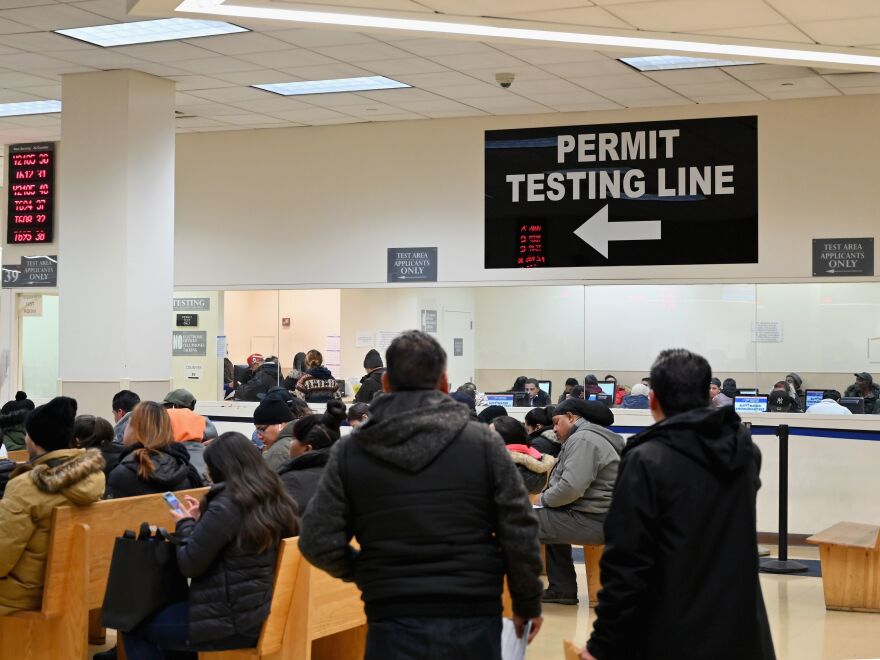More than 14 years after the original deadline, the enforcement of REAL ID-compliant driver's licenses or IDs has been pushed back once again.
The Transportation Security Administration and other federal agencies were expected to only accept the nationally approved IDs starting May 3, 2023. But on Monday, the Department of Homeland Security announced that the deadline would be extended until May 7, 2025.
The federal agency said that state motor vehicle departments need more time to comb through the backlog of applications created by the pandemic. But the virus is only the latest cause for delay in the yearslong effort to implement stricter forms of identification.
"This extension will give states needed time to ensure their residents can obtain a REAL ID-compliant license or identification card," Homeland Security Secretary Alejandro Mayorkas said in a press statement.
Will your ID be acceptable in 2025? Look for a star in the upper-right corner of your card
REAL ID-compliant licenses or IDs will be required for people 18 years old and older to fly anywhere within the U.S., enter nuclear power plants and access some federal facilities like military bases.
To get one, a person typically will need to show proof of their full legal name, date of birth, Social Security number, two proofs of residence and lawful status.
Some states including Washington, Michigan, Minnesota, New York and Vermont have also created their own enhanced driver's licenses that meet federal standards. Nationally approved IDs can be generally identified by a star in the upper-right corner.
Not everyone has been a fan of the REAL ID law
The REAL ID Act was passed by Congress in 2005 following the Sept. 11 attacks in 2001. At the time, the 9/11 Commission found that it was too easy for people to obtain driver's licenses. The group called for ID requirements to be raised and nationally standardized.
The law was originally scheduled to be enforced in 2008, but several states have resisted compliance over the years on the basis of cost or privacy issues. It wasn't until 2020 that all 50 states including the District of Columbia began issuing REAL ID-compliant licenses and IDs. All U.S. territories except for American Samoa are also complying.
As of 2021, only 43% of all state-issued driver's licenses and identification cards are considered REAL ID-compliant, according to DHS.
Others have raise concerns about the law's impact on immigrants, particularly those who are not authorized to live in the U.S.
"DMV agents will have to make complicated judgments about a person's lawful status in the United States," the New York Civil Liberties Union wrote in a 2007 statement, before the original deadline for compliance.
Copyright 2022 NPR. To see more, visit https://www.npr.org.




